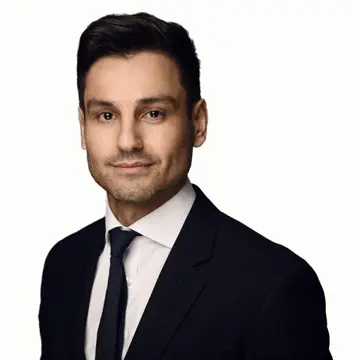
Mr Andrew Scott is a Consultant Ophthalmic Surgeon specialising in cataract surgery and complex glaucoma at Moorfields Eye Hospital NHS Foundation Trust and Moorfields Private Hospital.
What can you offer to patients who have both cataracts and glaucoma?
Cataract surgery is the operation I perform most frequently, but I do not treat glaucoma patients with cataracts as standard cataract patients. Extra attention is required before, during and after cataract surgery to ensure the best outcome.
There may be some very challenging cataract phenotypes and scenarios in glaucoma patients. As a glaucoma specialist, I identify these pre-operatively and tailor a specific treatment plan for the individual eye to maximise the benefits and minimise the risk to the eye.
Whilst most cataract surgery is beneficial to eye pressure in the long term; it may also lead to dangerous pressure spikes in the short term. Therefore, I monitor these patients closely in the post-operative period and I am meticulous about removing all viscoelastic agents used during cataract surgery.
Cataract surgery in patients who have had previous glaucoma surgery may be detrimental to drainage blebs as the inflammation generated by the surgery may induce scarring and result in glaucoma surgery failure. Quick and efficient surgery helps to minimise this. I always apply anti-scarring agents such as Mitomycin C and anti-VEGFs at the end of the procedure to fight the inflammation and follow them up closely.
The timing of the surgery is also important. In angle closure glaucoma, cataract surgery, even when there is no visually significant cataract, may help reduce eye pressure and arrest glaucoma for good.
In some cases, I may combine cataract surgery with a minimally invasive glaucoma procedure, such as inserting a hydrus microstent in the eye’s drainage angle. These are effective at lowering intraocular pressure and may reduce the number of glaucoma drops and medication burden.
What are the newest treatment options or strategies available?
Treatment paradigms are changing in glaucoma due to emerging evidence from landmark trials, most of which were led by researchers at Moorfields. I regularly attend and present at local, national and international meetings to ensure that I am up to date with the latest evidence and offer the best quality care to my patients.
In the past, selective laser trabeculoplasty (SLT) was offered as a last resort. I now offer it as a primary treatment in newly diagnosed early to moderate glaucoma. SLT is a truly minimally invasive intervention as it is effective at lowering eye pressure without compromising safety. First-line SLT gives drop-free disease control in 74% of patients in 3 years with less surgery and at lower cost.
There are many new devices that have been introduced and are marketed as minimally invasive procedures that can be combined with cataract surgery. These include devices like the hydrus microstent and preserflo. In the right patient, these devices may be an excellent way of controlling glaucoma or the medication burden. However, overzealous use of these devices may delay or be detrimental to glaucoma control.
As an experienced glaucoma surgeon, I understand which procedure is right for what patient. I am also mindful that the traditional glaucoma operation: a well-executed trabeculectomy, remains the gold standard operation that stood the test of time and is most likely to achieve the best long-term success rates. It still is indicated in most patients with advanced glaucoma.
Sadly, many surgeons are moving away from trabeculectomies as they are challenging to perform and require meticulous and time-consuming post-operative care. I have been trained at Moorfields where the Moorfields safe surgery trabeculectomy has been developed. I have performed hundreds of these operations safely, with excellent results, so I am confident in offering this surgery when indicated.
Are you involved in research projects?
During my training at Moorfields, I have performed several research projects. I have also conducted a three-year laboratory research project that led to a PhD award by UCL and several cutting-edge scientific publications. As a full-time consultant, I now dedicate all my time to surgery and direct clinical care of patients. Whilst I miss not having any dedicated time to research in my job-plan, as a full-time clinician, I can continually acquire a wealth of surgical and clinical experience that makes me better at what I do.
I still find time to conduct audits and mini-research projects that may positively impact patients’ clinical care. I also regularly attend and present at local, national, and international conferences and am a European Glaucoma Society committee member. I am passionate about teaching and am a visiting lecturer at UCL and City University.
Why do patients come to see you?
I get several referrals from consultant colleagues or optometrists for cataract surgery or specialised glaucoma care. Consultant colleagues may sometimes refer for a second opinion, especially when the diagnosis of glaucoma is in doubt or when there is uncertainty of whether glaucoma surgery is indicated and which operation to choose for the patient.
Sometimes cataract surgery alone may be all that is needed to control their glaucoma, but other patients may need more complex surgery such as a trabeculectomy or an aqueous shunt.
I also see many patients who are self-referrals. Patients come to see me as they want the reassurance that I have trained and practise at a world-renowned centre of excellence that is always at the forefront of ophthalmic care globally.
I also actively listen to patients and spend over 45 minutes with my new patients to ensure that I have addressed all their concerns and have a treatment plan tailored to their individual needs.
I am very thorough in my examination and do not take any shortcuts as the ‘devil is in the details’. Patients are sometimes very anxious about their condition or surgery, and I do my best to put them at ease and reassure them.
-
More about Mr Andrew Scott
Learn more about Mr Scott's qualifications, professional memberships and the conditions he treats.
-
Refer your patient to Moorfields Private
Choose world-leading eye care for your patients.